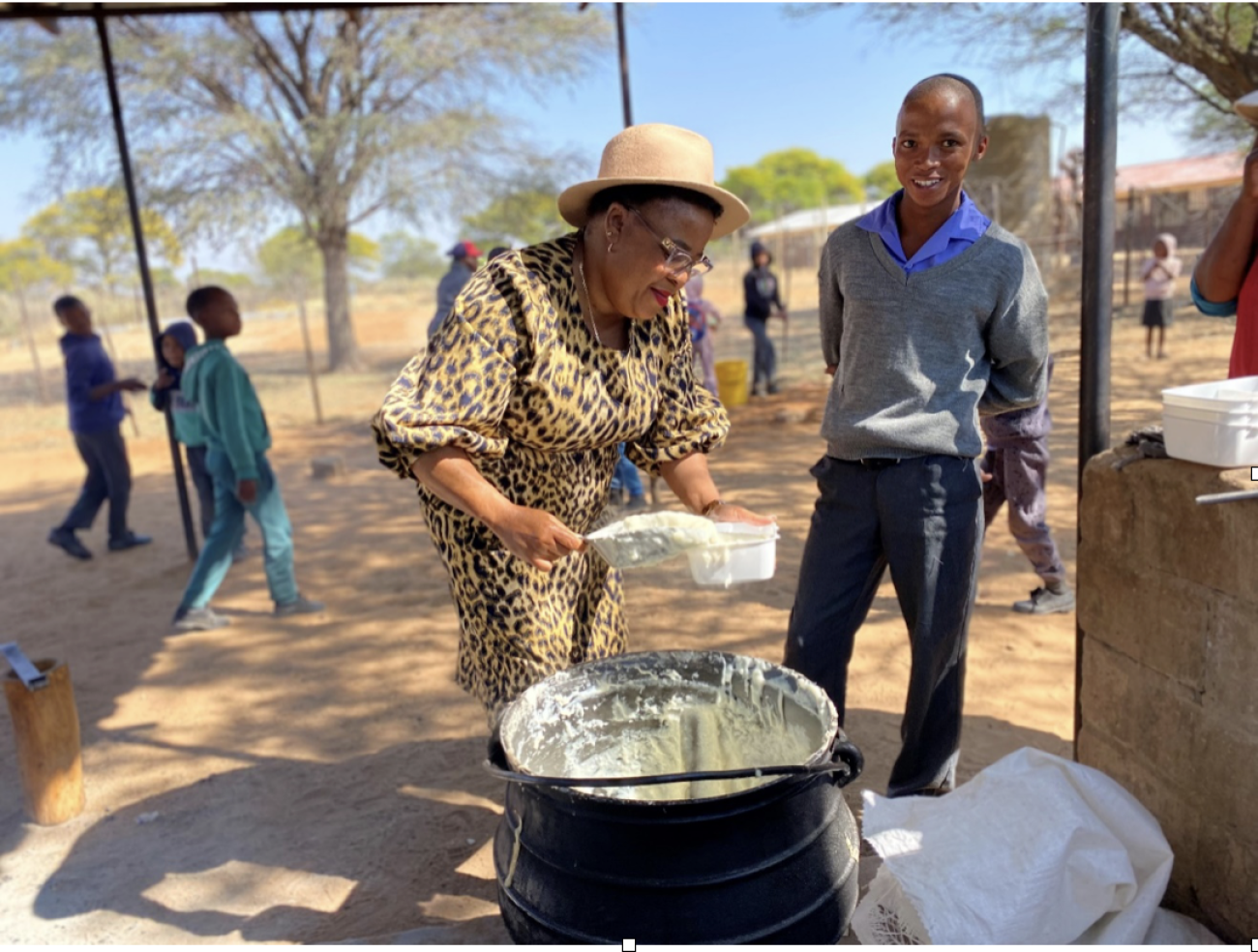Ministry of Education, Arts and Culture and the World Food Programme in Namibia Celebrate African Day of School Feeding.

Ministry of Education, Arts and Culture and the World Food Programme in Namibia Celebrate African Day of School Feeding.
Namibia has joined the rest of Africa in celebrating the African Day of School Feeding (ADSF), under the theme be "Boosting Local Food Procurement Systems and Regional Value Chains in The Context of AjCFTAfor Sustained Home-Grown School Feeding". The theme aligned with the African Union (AU) 2023 theme: "Acceleration of African Continental Free Trade Area (AfCFTA).
This year's 8th edition of the continental ADSF is being celebrated in Federal Democratic Republic of Ethiopia from 28 February to 01 March 2023.
The ADSF continental commemoration is held on an annual basis with the purpose of heightening the importance of investing in school feeding programmes, giving due consideration of backlogs created by the colliding education, food and climate crises, impacting Africa's children and the future generations. It also served as a convening space, bringing together stakeholders across the public, private, civil society and multilateral sectors to raise awareness and knowledge on school feeding, take stock of progress made and stir political support for pro-school feeding policies, programmes, and resources.
As part of its Agenda 2063, the African Union has developed and adopted the Continental Education Strategy for Africa (CESA 16-25) which is a continental domestication of SDG4; and the Comprehensive Africa Agriculture Development Programme (CAADP). Both mention school feeding, particularly home-grown school feeding, as an intervention that promotes agricultural and rural development and improves access to education and educational outcomes.
The Malabo Declaration of 2014 renewed the political commitment towards CAADP and during the 2016 ordinary session of the Assembly of Heads of State and Government, a Decision was passed recognizing the importance of the Home-Grown School Feeding Programme (HGSFP)to improve education access and outcomes, and to support local and rural economies.
The event has been instrumental in the creation of the School Meals Coalition: During the 2021 celebration, the AU and its partners called for the creation of a School Meals Coalition and encouraged member states to join and lead the way-to date out of the 76 members of the Coalition 34 are African countries.
Since its adoption by the African Union Head of State and Government in 2016, during the 26th session of the African Union, as the African Day of School Feeding (ADSF) the I st of March, it become a tradition to celebrate this event across the continent in collaboration with the World Food Programme (WFP) and its Centre of Excellence against Hunger in Brazil.
During the 2022/2023 financial year, the Ministry of Education, Arts and Culture (MoEAC) invested a total amount ofN$ 89 182 912.34 into the National School Feeding Programme (NSFP) to procure maize blend for 461 829 learners in 1514 schools countrywide. The NSFP is primarily aimed at providing food mainly to vulnerable learners or those from food insured households. Currently, the feeding programme is limited to Primary and Combined schools.
In 2021, the World Food Programme (WFP) in Namibia partnered with the Ministry of Education, Arts and Culture and piloted the Home-Grown School Feeding Programme (HGSFP) across 29 schools in seven regions ofNamibia. WFP and MOEAC has since invested N$ 2.7 million in this programme.
Similarly, MoEAC has allocated an additional N$ 5 million towards sustaining this programme in the current financial year 2023/2024. Through this partnership, MoEAC, and WFP, intend to relieve acute hunger and malnutrition, enhance educational outcomes and increase enrollment and retention rates.
The HGSFP complements the National School Feeding Programme (NSFP) through the provision of balanced and diversified diets with food purchased locally from local smallholder farmers, served with the existing fortified maize blend. This programme creates a predictable income for the smallholder farmers and traders and boosts agricultural production thereby enhancing the local economy and reducing poverty.





